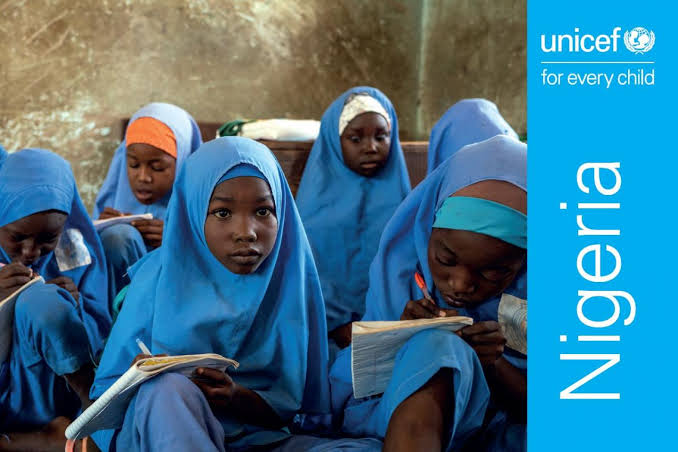The United Nations Children Fund(UNICEF) has lamented that poor education financial investment is impeding expected improvement in children’s literacy and numeracy in Nigeria’s basic education level.
The UNICEF Nigeria Chief of Education, Saadhna Panday-Soobrayan, in her remarks at the Foundational Literacy and Numeracy in Nigeria organized in partnership with the USAID, predicted that expected improvement in children’s literacy and numeracy won’t come as soon as expected because of poor financial investment in the education system, particularly at the basic level.
She said Nigeria is spending too little on education on average of 1.2 per cent of the Gross Domestic Product (GDP) of the country is being spent on education when the international benchmark was four to six per cent stressing that the available money is not even spent well”
“A larger percentage of the allocated funds are spent on higher education when children at basic education level can neither read, write nor count. In nutshell, significant investment is required in Nigeria’s education system, particularly at the basic level.”
Panday-Soobrayan also raised the issue of the safety of the schools as she described it as a challenge which has discouraged parents and their children from attending schools.
“Many children are not in school because the schools are unsafe for them. Insufficient teachers and teaching materials too are some of the challenges.”
Panday-Soobrayan, who made a case for mother tongue approach to be adopted in teaching and learning in Nigeria, particularly at the basic education level, explained that millions of children are lost, in interest and attendance, along the way of the basic education system due to language barrier.
She cited examples to several developed countries of the world where teaching in the mother tongue is in their basic education system to improve the literacy and numeracy of their young ones.
“Studies and evidence across the world have shown that when you teach children in their mother tongue especially at age 1 to 3, they learn better and faster. The use of the mother tongue, unarguably, assists the children to acquire basic numeracy and literacy skills. You can then switch to a second language slightly later in life. Obviously, improved results are achieved with this approach,” she said.
“In addition to that, teachers should be trained to teach in local languages. There should also be books and other tutorial materials produced in local languages. These would also go a long way in solving the literacy problems in Nigeria.”
Meanwhile, in her presentation titled: Early grade reading, the USAID model, the Senior Pupil Teachers Performance Advisor, Grace Malgwi, gave the modalities adopted by USAID to contribute to the efforts to improve numeracy and literacy rate among children.
Malgwi therefore, appealed to governments at all levels to increase investment in the education system, particularly basic education, and take other measures that would bring more children back to school and improve their numeracy and literacy levels.
READ ALSO FROM NIGERIAN TRIBUNE




